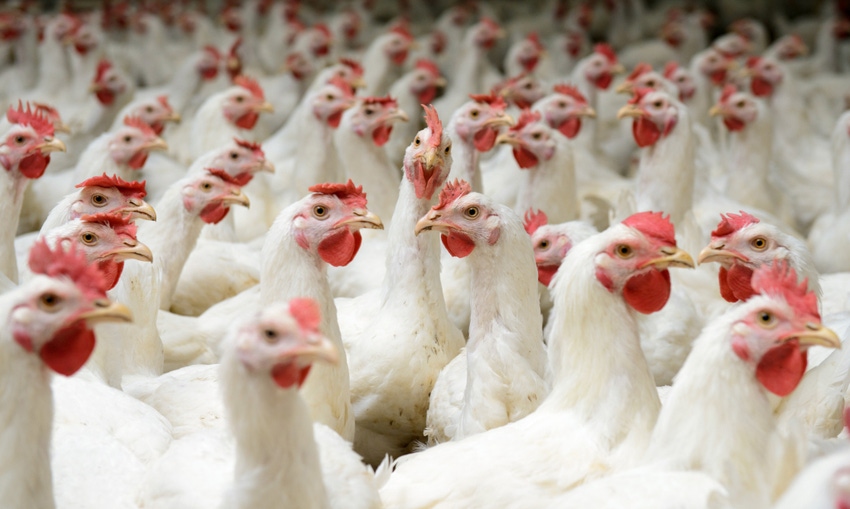Changes pertain to committee participation and testing procedures for avian influenza, typhoid and other diseases.

The U.S. Department of Agriculture's Animal & Plant Health Inspection Service (APHIS) has proposed multiple amendments to the National Poultry Improvement Plan (NPIP), including changes to committee participation and testing procedures for avian influenza, typhoid and other diseases. Public comments will be accepted through May 9, 2018.
NPIP is a cooperative federal/state/industry program for controlling certain poultry diseases. The plan consists of a variety of programs intended to prevent and control poultry diseases. Participation in all plan programs is voluntary, but breeding flocks, hatcheries and dealers must first qualify as “U.S. Pullorum-Typhoid Clean” as a condition for participating in the other plan programs.
APHIS is proposing updates to its NPIP regulations, as voted on and approved at the 2016 biennial conference. The changes would update and clarify several provisions, including those concerning NPIP participation, voting requirements, testing procedures and standards.
One proposed change would add provisions for the use of real-time reverse-transcriptase polymerase chain reaction (RRT-PCR) testing for avian influenza by primary breeder authorized laboratories. The current regulations provide that RRT-PCR testing must be conducted using reagents approved by the department and the official state agency and using the National Veterinary Services Laboratories (NVSL) official protocol for RRT-PCR and performed by personnel who have passed an NVSL proficiency test.
APHIS is proposing to allow NPIP primary breeder authorized laboratories to use federally licensed kits or NVSL tests on their own breeding flocks for more flexibility. An NPIP primary breeder authorized laboratory with an accredited quality assurance program that can satisfactorily pass a proficiency test provided by APHIS using the NVSL-approved protocol or federally licensed kit would be allowed to run this assay as a routine surveillance measure. A follow-up of any positive results would continue to be handled by the department and the official state agency and confirmed by NVSL.
The proposed changes also call for a new U.S. Salmonella Monitored program. Primary egg-type breeder companies routinely monitor their flocks and chicks for all salmonella serotypes with the goal of producing salmonella-free products. “The addition of a Salmonella Monitored program for primary egg-type breeder companies would formalize those efforts and provide recognition and potential additional marketing opportunities for flocks that choose to participate,” APHIS explained in the Federal Register listing.
The updates also include additional biosecurity measures to protect flocks from the introduction of disease from natural sources and protection from vectors known to be in the wild.
Also suggested is a change to the testing requirements for commercial table-egg laying flocks. The current regulations state that a sample of at least 11 birds from table-egg layer pullet flocks and table-egg layer flocks participating in the U.S. H5/H7 Avian Influenza Monitored classification must test negative for H5/H7 subtypes of avian influenza within 30 days prior to movement.
“We are proposing this change to reflect the (World Organization for Animal Health's) established maximum incubation period for avian influenza of 21 days. This change would also make the H5/H7 Avian Influenza Monitored program for commercial table-egg layers consistent with the corresponding programs for commercial broilers and turkeys,” APHIS noted.
APHIS will consider all comments on the proposed rule received on or before May 9. Comments may be submitted online at www.regulations.gov/#!docketDetail;D=APHIS-2017-0055 or by mail at Docket No. APHIS-2017-0055, Regulatory Analysis & Development, PPD, APHIS, Station 3A-03.8, 4700 River Road Unit 118, Riverdale, MD 20737-1238.
Upcoming meeting
The next NPIP General Conference Committee & Biennial Conference will be held this summer in Franklin, Tenn. The General Conference Committee meeting will be held on June 26, 2018, with the general session on June 27-28. Registration and hotel information can be found here.
Topics to be discussed at the meeting include:
NPIP approval of new diagnostic tests;
Salmonella update;
NVSL avian influenza update, and
Mycoplasma update.
The meeting will be open to the public; however, public participation in discussions during the sessions will be allowed only if time permits. Written statements may be filed at the meeting or filed with the committee before or after the meeting by contacting Dr. Denise Heard at [email protected].
About the Author(s)
You May Also Like





